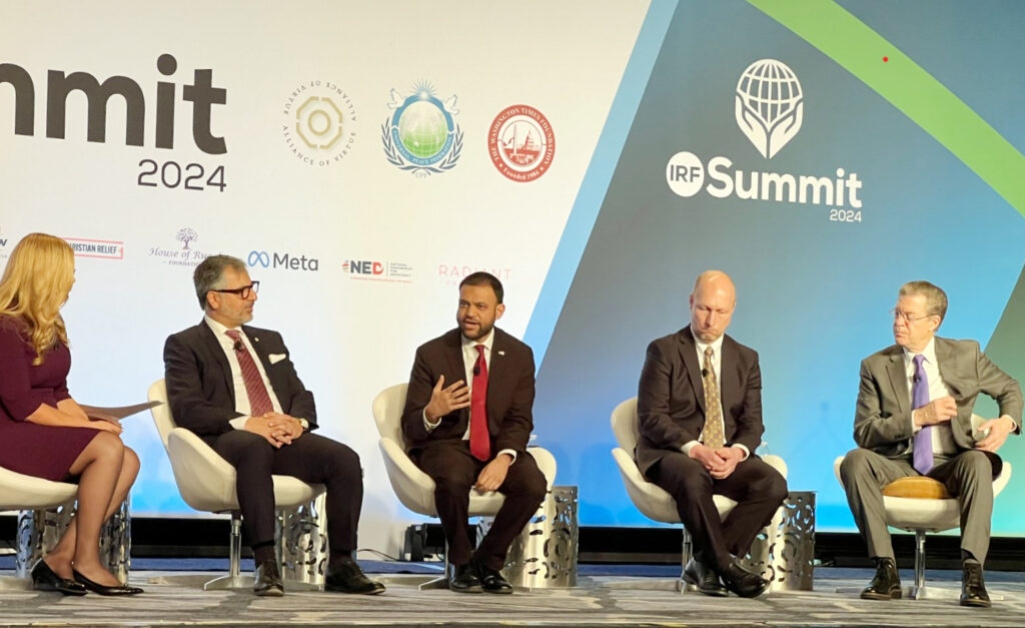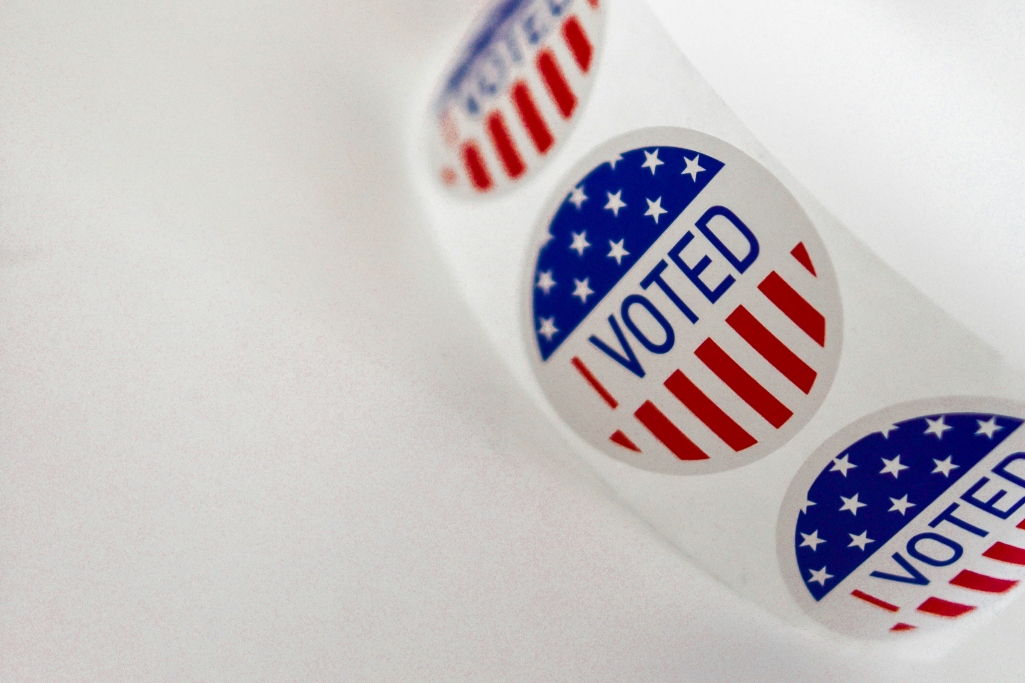
U.S. Ambassador at Large Rashad Hussain (center) speaks on a panel at the International Religious Freedom Summit Jan. 30.
WASHINGTON (BP) — Religious freedom impacts economic prosperity and political rights, U.S. House Speaker Mike Johnson said Jan. 31 in his keynote address at the International Religious Freedom Summit in Washington.
“Economic prosperity grows when people are allowed to follow their faith, and freedom flourishes where freedom is allowed,” Johnson said. “When religious freedom is taken away from the people, political freedom soon follows.”
Johnson spoke in the final plenary of the two-day summit that, in its fourth year, convened a diverse segment of religious freedom advocates and leaders from the U.S. and abroad. Through a series of plenaries, panel discussions, breakout sessions and personal testimonies, advocates encouraged and equipped attendees to advocate for a global right to individual religious freedom for all, regardless of religion and gender.
The Southern Baptist Ethics & Religious Liberty Commission (ERLC) was among the event’s convening partners.
“As Southern Baptists, we have a rich history of advocating for a government that safeguards the ability for us to live according to our deeply held beliefs found in Scripture,” ERLC Policy Associate Allison Cantrell said.
“By taking part in the fourth annual summit, we also deepen vital partnerships to protect the religious liberty of all people around the world,” Cantrell said, “as we recognize infringements upon religious liberty ultimately inhibit the work of our missionaries and churches in fulfilling the Great Commission.”
Johnson decried atrocities and violations of religious freedom particularly in North Korea, Myanmar, Nigeria, Nicaragua, Cuba and China, citing the persecution of Uyghur Muslims, Buddhists, Fulan Gong, Catholics, Protestants and others. He advocated for Jewish individuals globally who are suffering spikes in persecution since the Oct. 7 Hamas attack on Israel.
He urged the Biden Administration to fully enforce the letter and spirit of the Uyghur Forced Labor Prevention Act, which President Biden signed into law in December 2021 after its bipartisan passage.
“We must use all of our resources to prevent American involvement in Uyghur genocide,” Johnson said. “We should all be united on this, that’s who we are as Americans.”
Johnson said the U.S. was founded on religious liberty and the recognition of all men as created in God’s image, pointing out the Declaration of Independence and the Bill of Rights.
“While it may not be popular in today’s increasingly secular world, America was founded on the ideal of religious freedom and the belief that every single person has inalienable rights,” Johnson said. “Since our founding, America has been the greatest proponent of religious freedom around the world, because we were founded on that ideal.”
While the U.S. forcibly enslaved African men, women and children before and after the freedom documents were signed, Johnson said an individual’s “value is not related in any way to the color of your skin, or what country you live in, or how intelligent you are. Your value is inherent,” he said, “because it is given to you by your Creator.”
He noted the Jan. 29 International Holocaust Remembrance Day in decrying anti-Semitism.
“The Anti-Semitism that led to the Holocaust is now being spread through new tools and is once again rearing its ugly head,” Johnson said. “Since Hamas slaughtered … Israeli citizens on Oct. 7, we’ve seen a frightening and seemingly coordinated rise in anti-Semitism, including here on our own shores.”
He urged summit attendees to commit to the long-asserted promise, “Never Again.”
The Summit launched Jan. 30, co-chaired by Sam Brownback, former U.S. ambassador at large for international religious freedom; and Katrina Lantos-Swett, president of the Lantos Foundation for Human Rights and Justice. U.S. Sen. James Lankford of Oklahoma and U.S. Rep. Young Kim of California were co-chairs.
The summit included panel discussions spanning persecution globally, defining international religious freedom and exploring its application in the contexts of national law, modern culture and human rights. Panels focused on the challenges of non-majority faiths in India, presented women leaders in religious freedom abroad, and explored ways to counter anti-Semitism.
Among breakouts were sessions on minorities in the Middle East, rising anti-Semitism, intersectionality and international religious freedom, Chinese Christian prisoners of conscience, blasphemy and violence across Asia, violations against Indigenous and occupied religious communities, legislative action, and persecution in war and conflict zones including Ukraine, Armenia and Nigeria.
The full program is available here.
(EDITOR’S NOTE – Diana Chandler is Baptist Press’ senior writer.)


